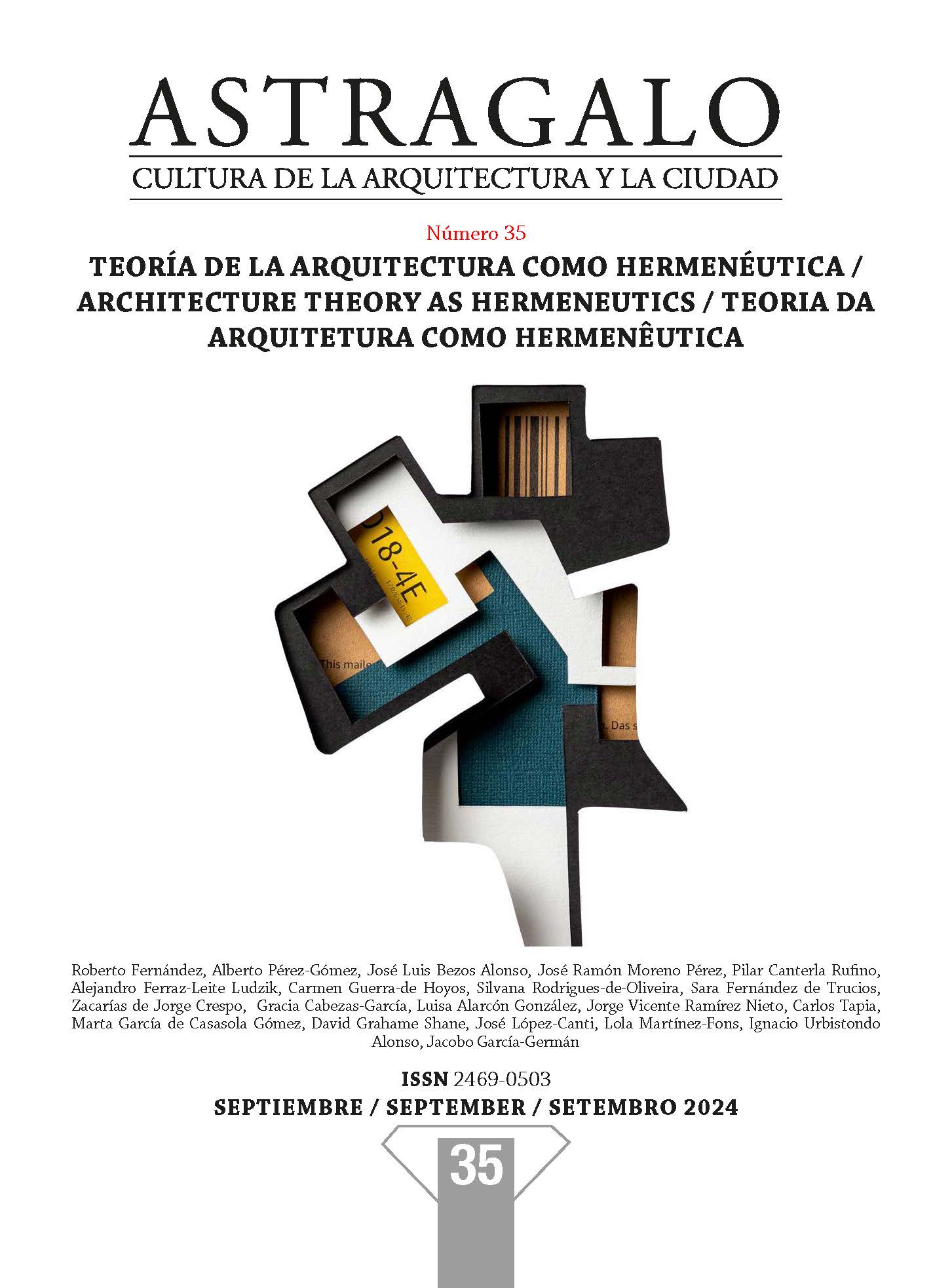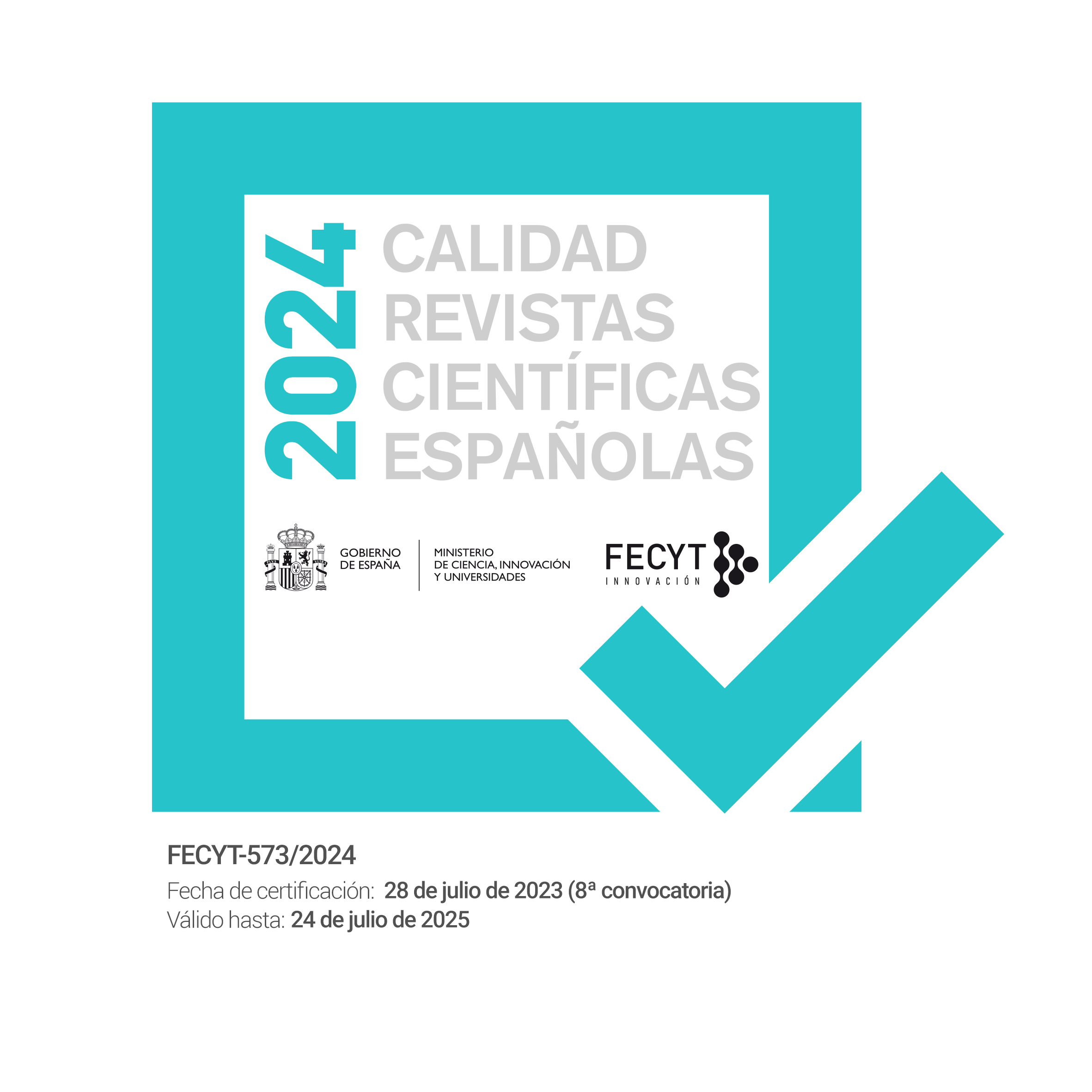Understanding, Criticising, Knowing
The discursive environment of material architecture
DOI:
https://doi.org/10.12795/astragalo.2024.i35.01Abstract
This text introduces the content of issue A35 of the journal Astrágalo dedicated to Architectural Hermeneutics, exploring the relationship between material construction and theoretical discourse in architecture, from Vitruvius to modernity. Throughout history, architecture has oscillated between endogenous approaches, where theory derives directly from construction, as in the Renaissance, and exogenous approaches, where theory becomes more autonomous and critical, especially in modernity. This issue of Astrágalo analyses this interactive dynamic between designing and writing, highlighting the importance of hermeneutic discourse in overcoming the functionalist and technical vision of architecture. Essays by Alberto Pérez-Gómez and Grahame Shane delve into the critical legacy of Colin Rowe, an influential British intellectual, and his impact on architectural theory. Pérez-Gómez argues that hermeneutics, understood as the art of interpreting beyond physical reality, allows architecture to express the human condition and its ethical and cultural values. This hermeneutic perspective not only enhances our understanding of built architecture, but also underlines the socio-political relevance of future architecture. Thus, this issue of Astragalus offers a profound reflection on how architectural theory can still guide and enrich practice, both in the past and in the present, to respond to contemporary challenges.
Downloads
Downloads
Published
How to Cite
Issue
Section
License
Copyright (c) 2024 Roberto Fernández

This work is licensed under a Creative Commons Attribution-NonCommercial-ShareAlike 4.0 International License.












 2024 QUALIS-CAPES: Anthropology / Archaeology A3; Architecture, Urban Planning And Design A3; Urban And Regional Planning / Demography A3
2024 QUALIS-CAPES: Anthropology / Archaeology A3; Architecture, Urban Planning And Design A3; Urban And Regional Planning / Demography A3





